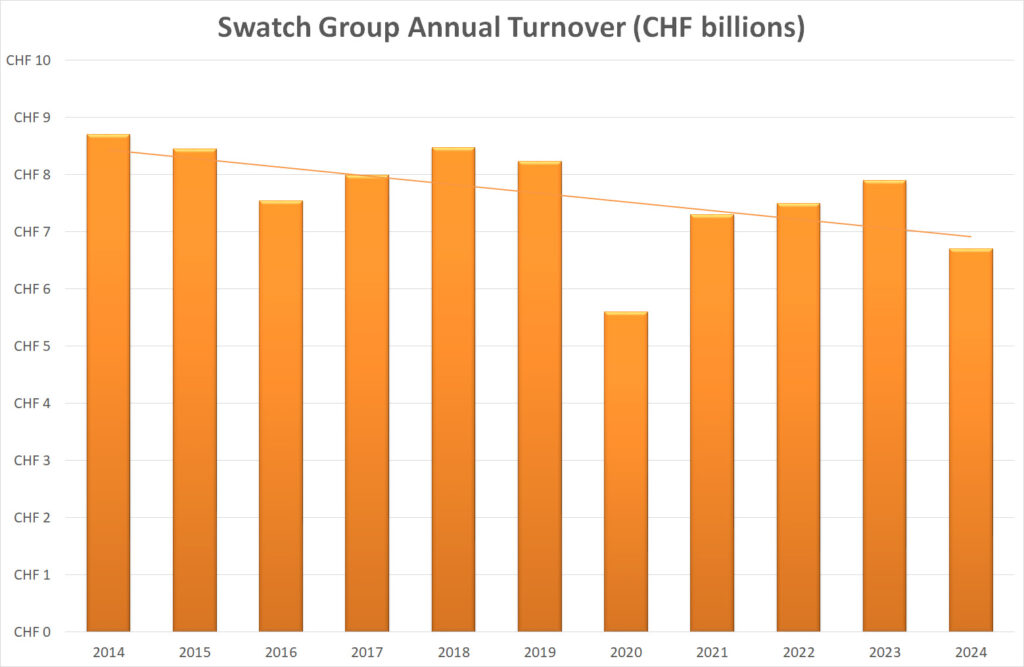Swatch Group’s controlling shareholders in the Hayek family are coming under pressure to give more power to smaller investors.
Steven Wood, founder and chief investment officer of New York-based GreenWood Investors, gave an interview to the UK’s Financial Times in which he criticises the Swatch Group board for running the business on behalf of the Hayek family and that “minority shareholder rights are being ignored”.
His firm reportedly owns around 0.5% of Swatch Group but, as a boutique investment firm with $150m in assets under management, its holding represents one-quarter of its portfolio.
Mr Wood has been lobbying to be elected to the Swatch Group board so that he can influence the business on behalf of investors that currently own 75% of all shares.
He argues that the fragmentation of these smaller shareholders mean they struggle to be heard when the Hayek family controls 44% of the shares that have voting rights.
Ultimately, he suggests, there is insufficient scrutiny from the board of directors over the $7 billion group because the Hayek family has such tight control of the public company, and this is impacting performance.

His company, GreenWood Investors, has created a manifesto for change at Swatch Group in which it argues the group needs to “increase marketing spend, funded by removing overhead burden, to double-down on storytelling for the incredible historic brands and ongoing innovation within the group”.
It should also “remove layers in between founding family, executives and the company’s core employees of doers, sellers and inventors”.
Mr Wood is presenting himself as a supporter of Swatch Group, but that it is failing to keep pace with rivals in the luxury space.
“I see a company with incredible potential. Swatch Group owns a number of timeless brands, and I see the ability for these brands to recapture a new generation of customers and rightly claim their place in the luxury goods industry again,” he suggests in an interview with Swiss business news site TheMarket.ch.
“I have talked to more than thirty industry leaders, both former executives of Swatch Group as well as some who work for competitors such as LVMH or Richemont, and they all confirm my view. While Nick Hayek, the CEO of Swatch Group, has done an incredible job building the entry level brands, there still exists an opportunity to do better with the premium brands. They have the right products, but they suffer from a closed culture and missed execution opportunities. They should be open for new executives who come with fresh ideas,” he insists.
Swatch Group has responded to the charge that any shareholder lacks a voice. It says that every shareholder — of bearer shares or registered shares — has a voting right.
Mr. Jean-Pierre Roth, former President of the Swiss National Bank, is already an official representative of the bearer shareholders on the Board of Directors, a statement from the company adds.
Swatch Group’s structure is far from unusual in the Swiss watch or wider luxury industry where Richemont and LVMH both have powerful families at their helms despite being publicly-listed companies.
A resolution has been tabled by Mr Wood for him to be elected to the board at next week’s annual general meeting for Swatch Group.
Swatch’s board says it will follow due process but has recommended shareholders vote against the appointment.
Mr Wood appears to be resigned to losing.
In that event, he told the Financial Times that he would try to put together a consortium of investors totalling 5% of the group’s shares, which would allow them to call an extraordinary general meeting where shareholders without voting rights could put on additional pressure for Mr Wood’s appointment.

